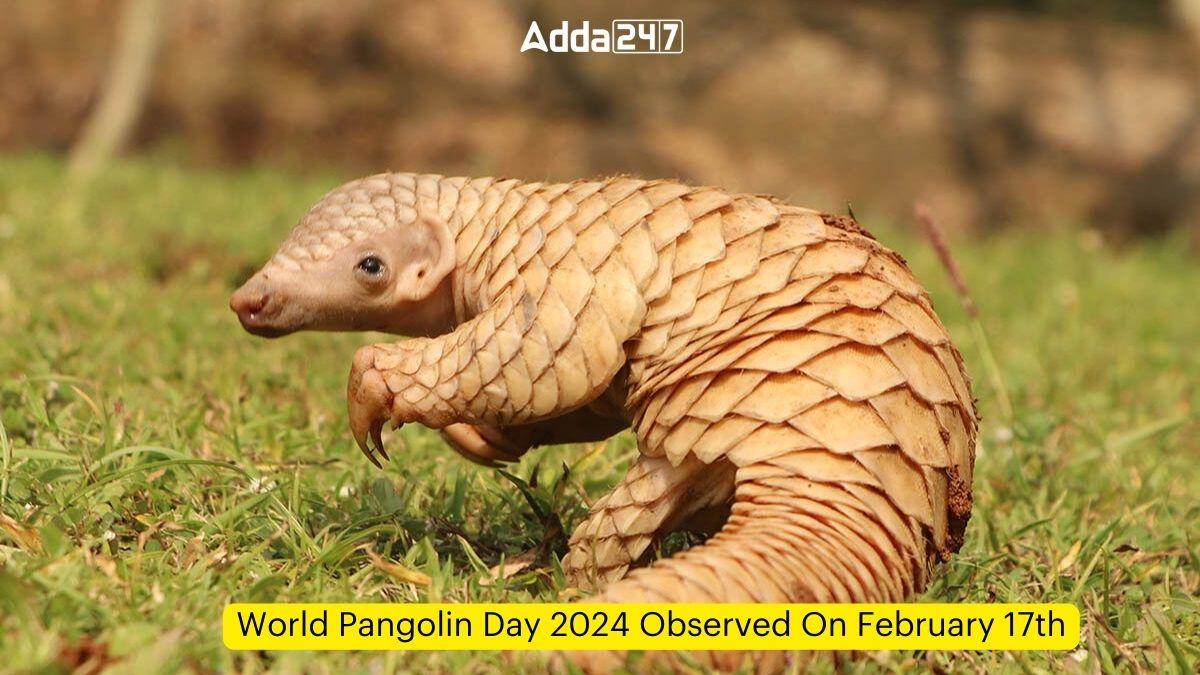The Andhra Pradesh Forest Department, in collaboration with environmentalists, has launched an awareness campaign to commemorate World Pangolin Day on February 17, 2024. Highlighting the plight of the Indian Pangolin (Manis crassicaudata), also known as the Thick-Tailed Pangolin or Scaly Anteater, this initiative underscores the urgent need for conservation efforts for one of the world’s most trafficked mammals.
The Plight of the Indian Pangolin
The Indian Pangolin, native to the Indian Subcontinent, finds itself under severe threat due to illegal wildlife trade. Despite being protected under Schedule-I of the Indian Wildlife (Protection) Act, 1972, and listed in Appendix-I of CITES, prohibiting trade in pangolin parts, the species is classified as ‘Critically Endangered’ on the IUCN Red List. Chiranjiv Choudhary, Principal Chief Conservator of Forests (PCCF) and Head of Forest Force (HoFF), emphasized that pangolins play a crucial role in maintaining ecological balance by regulating insect populations through their diet of ants and termites.
Conservation Efforts and Challenges
The Forest Department has not conducted scientific enumeration to accurately determine the population of pangolins in India, a gap that poses significant challenges to their conservation. The Indian Pangolin’s rarity and the high demand for its scales and meat, despite lacking medicinal value, have made it one of the most trafficked mammals. In Andhra Pradesh, efforts to understand pangolin population distribution, trade channels, and ecology are essential for their survival. The Forest Department, in partnership with the Eastern Ghats Wildlife Society, focuses on pangolin conservation within the Nagarjunasagar Srisailam Tiger Reserve (NSTR), leveraging the area’s rich biodiversity.
Empowering First Responders
In a significant step towards pangolin conservation, the Forest Department released brochures in English and Telugu on ‘Rescue and Rehabilitation Guidelines for Indian Pangolin’. Aimed at first responders, the guidelines provide crucial information on the dos and don’ts during pangolin rescues, especially in cases involving poachers or when pangolins are found in human-dominated landscapes. This initiative, spearheaded by Mr. Chiranjiv Choudhary and A.K. Naik, PCCF (Wild Life) & Chief Wildlife Warden, A.P., is intended to facilitate effective interventions to save pangolins in distress.
Understanding Pangolins
Pangolins are unique for several reasons:
- They are the only mammals completely covered in scales.
- They lack teeth and exclusively feed on ants and termites.
- There are eight species globally, split between Asia and Africa.
- Their scales are composed of keratin, the same protein found in human hair and nails.
- The Indian Pangolin is the sole species found in Andhra Pradesh.
Addressing the Causes of Endangerment
The pangolin’s status as the most trafficked mammal is attributed to the consumption of its meat as a delicacy and the demand for its scales in traditional medicine, particularly in Asia. This demand fuels a relentless poaching and illegal trade network that threatens their existence.
A Global Call for Action
World Pangolin Day serves as a rallying point for conservationists, governments, and the public to unite in the fight against the illegal pangolin trade. Through awareness, education, and proactive conservation measures, there is hope for the pangolin’s future. Protecting this remarkable species is not just about saving an animal from extinction; it’s about preserving the ecological balance they help maintain and ensuring the health of our planet for future generations.



 Kargil Vijay Diwas 2024, Remembering Ind...
Kargil Vijay Diwas 2024, Remembering Ind...
 Important Days in July 2024, Check Natio...
Important Days in July 2024, Check Natio...
 National Brain Research Centre Celebrate...
National Brain Research Centre Celebrate...
